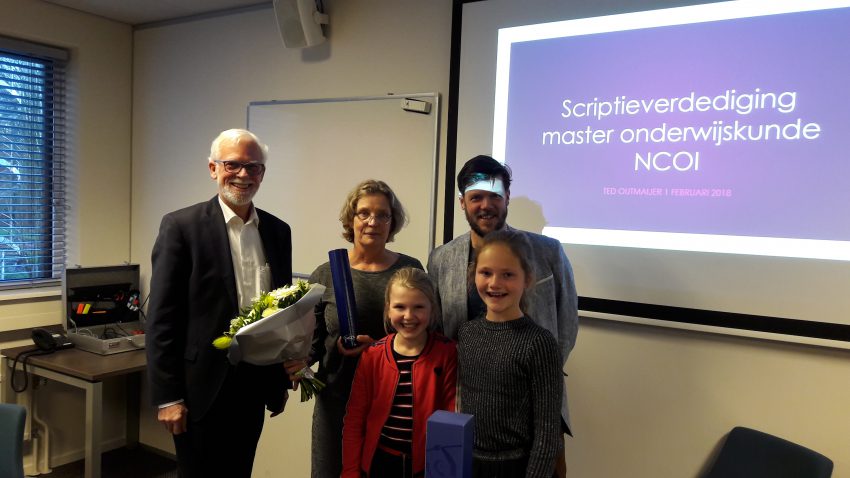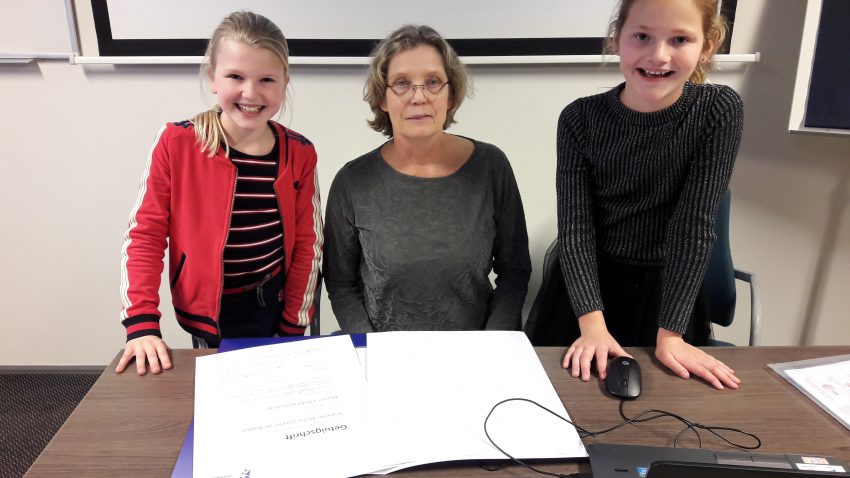Dear website visitor. In the light of the abuse of client data of Facebook-users, I have turned off my Facebook account. Not deleted yet, but that may follow. Instead, I am starting to post news and pictures only on this website. Pictures enough, while being in Andalusia for an extended stay.
Category: News
All latest news on Martin Mulder
New programme for international vocational education research
The German Federal Ministry of Education and Research (BMBF) is investing in a new programme for international vocational education research. German Universities and Research Institutes can submit proposals. This initiative may serve as an example for other states and countries who want to move vocational education development and research to a higher platform. The initiative was introduced at an event at which I had the privilege to give a keynote speech together with Professor Hubert Ertl, the new Director of Research of the Federal Institute for Vocational Education. The full reference to the publication in which I summarized the main points of my input: Mulder, M (2018). New investment in international vocational education research by the German federal government. The Journal of Agricultural Education and Extension, 24(2), 115-119. Up to 50 downloads can be made via this page: https://www.tandfonline.com/eprint/C3JnKzEtRzBexKtx6uAZ/full
Business competence and export performance
Just published online: Birru, W.T., Runhaar, P., Zaalberg, R., Lans, T, & Mulder, M. (2018 Online). Explaining Organizational Export Performance by Single and Combined International Business Competencies, Journal of Small Business Management. DOI 10.1111/jsbm.1240.
Research published on competence development of temporary agency workers
Research of Nienke Woldman on conditions for competence development of temporary agency workers is published in the Human Resource Development International. Continue reading Research published on competence development of temporary agency workers
Ted Outmaijer-De Bakker successfully presented her Master of Education thesis
On February 1st, Ted Outmaijer-De Bakker successfully presented her Master of Education thesis, entitled ‘Passend begeleiden en motiveren van (hoog)begaafde leerlingen’ (Adaptively supporting and motivating (highly) talented pupils). The study is situated in a large school for primary education in Tilburg, the ‘Koolhoven’. Very interesting: two pupils, Sophie van der Velden and Amber de Kort, from grades 7 and 8, who participated in this intervention study, came along. They presented themselves well and showed the fantastic Vlog they made about the type of education of the intervention. They were surely positive about the special treatment they got. They even had suggestions for teachers as to how to stimulate and coach them. Congratulations Ted with this success, and good luck with the next steps in your career. Thanks Dr. Martijn van Schaik for acting as assessor of this thesis. Thanks Sophie and Amber for being with us this afternoon, and assisting Mrs Outmaijer-De Bakker. Lots of success with your school careers!
In Memoriam Professor Curtis Finch
A shock went through me on April 14, 2014, when I visited the colleagues of the Department of Agricultural Education and Extension at Virginia Tech, Blacksburg, Virgina, USA, to benchmark the work we were doing at the Chair group of Education and Competence Studies at Wageningen University. Continue reading In Memoriam Professor Curtis Finch
Keynote Research of VET – International Perspective
Keynote ‘Research of VET on an International Perspective’ delivered at the information event for the new Funding line ‘Research on the Internationalization of Vocational Education and Training’ (IBBF), of the Federal Ministry of Education and Research in Bonn, Germany, January 30th, 2018. Thank you Dr. Henk van Liempt for the opportunity, and Antje Wessels and Hannes Barske for facilitating this. All professors and researchers who attended: success with your proposals. Check my PPT here.
Continue reading Keynote Research of VET – International Perspective
Rick Maatman, Wendy Keizer – Van der Veen en Maike Vlassak nieuwe Masters of Education
Op 29 januari, hebben Rick Maatman, Wendy Keizer-Van der Veen, en Maike Vlassak met succes hun scriptie voor de NCOI Masteropleiding Onderwijskunde verdedigd. De titels van de scripties zijn:
- Rick Maatman is: Gepersonaliseerd leren en (leer)motivatie. Een praktijkonderzoek naar de invloed van gepersonaliseerd leren op het verhogen van (leer)motivatie van leerlingen binnen het Liemers College.
- Wendy Keizer – Van der Veen: Netwerkleren, van theorie naar praktijk. Een onderzoek naar het stimuleren en faciliteren van netwerkleren als middel voor het maken van de transfer van het geleerde naar de praktijk.
- Maike Vlassak: CITAVERDE College, de deelnemer aan zet. Deelnemersparticipatie in het kwaliteitszorgsysteem.
Dr. Joachim Wetterling was begeleider van Wendy en Maike en beoordelaar van Rick.
Alle drie de nieuwe Masters: van harte gefeliciteerd! Succes gewenst in jullie verdere loopbaan. Continue reading Rick Maatman, Wendy Keizer – Van der Veen en Maike Vlassak nieuwe Masters of Education
Thank you Master of Education students at Paramaribo!
A week went by so soon with this perfect group of Master of Education students of the Institute of Graduate Studies and Research of the Anton de Kom University in Paramaribo, Suriname. Thank you all for a great week! Thank you Genevieve Blanchard (left) for your assistance. Continue reading Thank you Master of Education students at Paramaribo!
Machiel Bouwmans: new Doctor in educational sciences
Machiel Bouwmans successfully defended his PhD dissertation on January 12th for a jury of opponents consisting of Professors M.A.J.S. van Boekel (Wageningen University), M.L.L. Volman (University of Amsterdam), P.G.C. van den Bossche (Maastricht University and University of Antwerp) and T.V. Bondarouk (University of Twente). Co-promotors were Dr. Piety Runhaar and Dr. Renate Wesselink. Professor A. Bregt served as Deputy Rector Magnificus and chair. Continue reading Machiel Bouwmans: new Doctor in educational sciences


